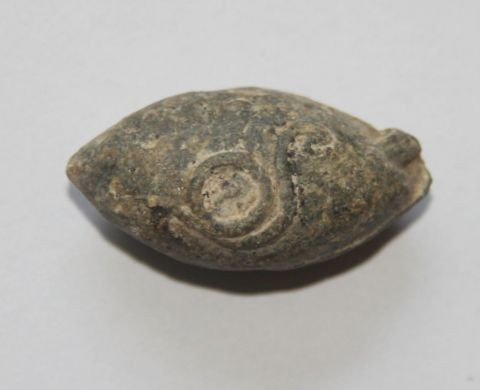Roman secret weapon: Whistling sling bullets were only for expert slingers, could reach speeds of up to 100 mph

War experts in Roman troops had a secret weapon to defeat their enemies some 1,800 years ago. As per archaeologists, they used whistling sling bullets against barbarian enemies. The secret weapon was found at a site in Scotland, where in second century A.D., a massive Roman attack happened against native defenders in a hilltop fort at Burnswark Hill.
The cast lead bullets weighed about 30 grams and had a 0.2 inch hole. Researchers believe that the holes were drilled to give the circling bullets a whistling or a buzzing sound when in flight. Archaeologist John Reid of the Trimontium Trust said that the holes converted the bullets into a “terror weapon.”
“You don't just have these silent but deadly bullets flying over; you've got a sound effect coming off them that would keep the defenders' heads down. Every army likes an edge over its opponents, so this was an ingenious edge on the permutation of sling bullets,” Reid told Live Science.
In order to hurl multiple bullets at a target in one throw, the whistling bullets were made smaller in size than typical sling bullets. The sling was made from two long cords that had a pouch attached for holding the bullets. According to the researchers, the Romans used them in groups of three and four for a “scattergun effect.” This would bring them very close to the enemy.
Reid added that making the whistling sling bullets was a tumultuous task as each and every bullet had to be drilled carefully for the maximum impact. It was a tremendous amount of work, just to hurl them away.
What makes this find interesting is that whistling sling bullets have not been found in any other Roman sites. However, during the Roman attack on Burnswark Hill, they were used. This made Reid realise that the bullets were used mainly by specialized units of auxiliary troops that were recruited to fight alongside Roman legions.
Slingers from the Balearic Islands (archipelago near Spain in the western Mediterranean) were the most-feared. They also fought for Roman general Julius Caesar during his unsuccessful invasions of Britain in 55 B.C. and 54 B.C.
Reid said that the whistling sling bullets could reach speeds of up to 100 mph in the hands of expert slingers like that from the Balearic Islands. If hurled at such speeds, sling stones can take off the top of one’s head.
When speaking on the Roman attack on Burnswark Hill, Reid mentioned that “it was an all-out assault on the hilltop, to demonstrate to the natives what would happen to them if they resisted.”





















